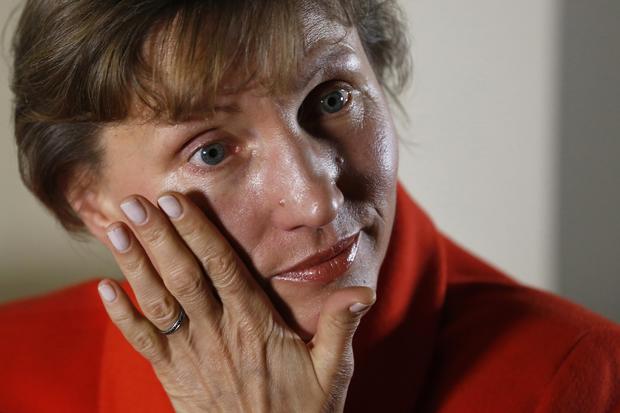U.K. opens inquiry into poisoning death of Russian spy turned Kremlin critic
LONDON -- As Alexander Litvinenko lay dying from radiation poisoning in 2006, he named the man he thought had ordered his murder: Russian President Vladimir Putin.
More than eight years on and with the U.K.-Russia relations at their iciest since the Cold War, a public inquiry opens Tuesday into the killing of the Russian intelligence agent turned Kremlin critic, who was poisoned in London with the radioactive isotope polonium-210. Britain has accused Russia of involvement - a claim Moscow denies.
Litvinenko's widow, Marina, hopes the judge-led inquiry will provide answers about what her lawyer has called "an act of state-sponsored nuclear terrorism on the streets of London."
But parts of the inquiry will be held in private, and judge Robert Owen says it's "inevitable" that some of his final report will remain secret for security reasons.
Litvinenko became violently ill in November 2006 after drinking tea with two Russian men at a London hotel. He died three weeks later.
In 2007, "60 Minutes" correspondent Bob Simon reported that Litvinenko's widow was with him the evening he first felt ill. They were preparing to celebrate their anniversary and the fact that they had just become British citizens.
Asked what the first sign was that something was wrong, Marina Litvinenko told Simon, "Just noticed it just before midnight, after eleven. It started just like a simple sickness. He told me 'Marina, I feel like, quite, not good.'"
British police soon identified the two Russians -Dmitry Kovtun and ex-KGB agent Alexander Lugovoi - as prime suspects. Both denied responsibility, and Moscow has refused to extradite them.
With the legal case stalled, Owen was appointed to oversee a coroner's inquest, held in Britain to determine the facts behind unexplained deaths.
But that, too, bogged down after the British government successfully sought to withhold evidence about Russia's alleged role - and about Litvinenko's relationship with British intelligence.
Finally, amid growing tensions with Moscow over violence in Ukraine, the British government last year called a full inquiry. Unlike an inquest, an inquiry will be able to hear secret evidence, in sessions held behind closed doors.
Owen has already said that he has seen secret government material that "established a prima facie case that the Russian state was responsible" for Litvinenko's death.
He has promised "to make public my final conclusion on the issue of Russian responsibility, together with as much as possible of my reasoning in that regard."
